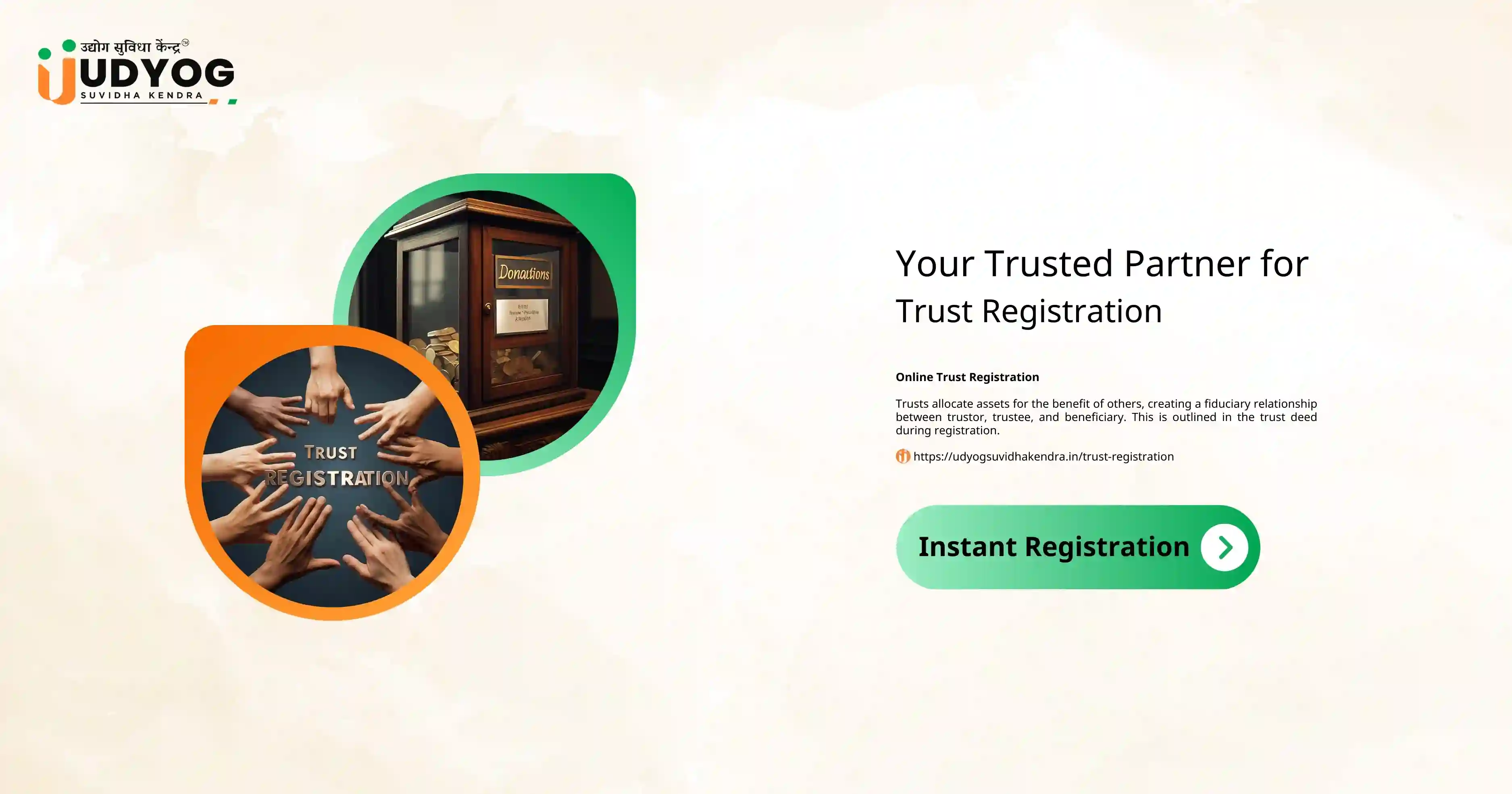Trust Registration Application

Trust Registration
4.8 4355 customersProcess of Trust Registration
STEP 1
- Fill out the online form with your details.
- Make the required payment to proceed.
- Get Call for Further Information, Documents & Advice
STEP 2
- Submit documents and information if requested.
- Team will review and validate documents and information.
STEP 3
- Creation of login credential.
- Respond to any follow-up from the team.
STEP 4
- Filing of an Application using the Credentials
- Government Processing Time
STEP 5
- Resolution of Queries if any, Raised via Authorities
- Issuance of Trust Registration on email.





